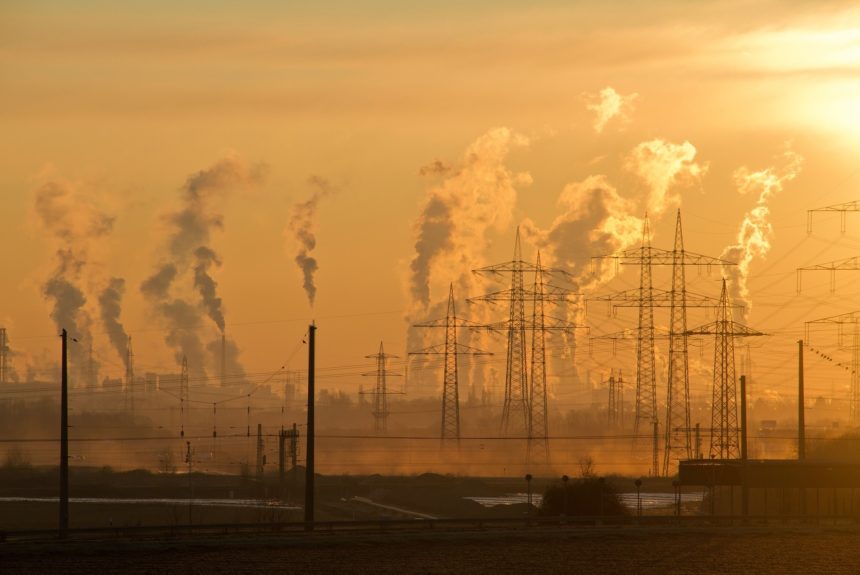A recent report by the United Nation’s International Panel on Climate Change (IPCC) unleashed a flurry of bad news. “Time is running short to avert hell on earth” read one headline. Countless others followed that theme.
Here’s a fun exercise: Do a word search in the 3,949-page UN IPCC document for “innovation.” You’ll find it only twice, as in “dataset innovations” or “report innovation”. No mention of technology innovation, business model innovation, financial innovation, or the need to unleash innovation. To be fair, the point of this particular report is all about better understanding the problem. But in a report that is three times as long as the Bible, why not dedicate even a page or two to how we might best solve the problem?
>>>> How Conservatives Should Approach the New IPCC Report
Honestly, the key takeaway seems to be that the IPCC is looking ahead to its next conference, COP26, in Glasgow, Scotland this November. That will be another chance for governments to commit to address the problem in a sort of Paris 3.0 agreement by upping the antes on their nationally determined contributions (NDCs).
However, it isn’t clear exactly what the countries represented hope to accomplish. Most have already signed on to the almost six-year-old Paris Climate Agreement but without much to show for it. Michael Oppenheimer, a climate scientist and policy expert at Princeton University, told Science magazine last year that “based on whether we have any prospect of meeting a 2°C target, from that point of view, it’s probably a D or an F.” On a positive note, Oppenheimer adds that at least Paris is making climate change “a top concern of all countries.”
I’ll forgo the foreign foray if, truly, all we are going to do is agree that climate change is “a top concern.” Everyone could stipulate that right now and save a lot of emissions on the air travel.
>>>> Appeasing China is the Wrong Way to Fight Climate Change
Instead of doubling down on more dire warnings that lead extremists and many in the media to call for drastic global government actions to end all fossil fuels now (while ignoring the clear benefits of natural gas, nuclear energy, and modernizing environmental regulations), how about we double down on solutions: economic freedom and clean energy innovation.
Want gigaton carbon reductions? Unleash gigaton innovation.
The unreported good news about climate change is that no matter how dire the warnings, ultimately, it’s economic freedom and clean energy innovation that’s needed. It’s what enabled the United States to achieve the world’s largest energy-related emissions reductions in 2019 and the largest total reduction since 2000. That’s before the COVID-19 shutdown. That wasn’t the result of the Paris Climate Agreement or a “Green New Deal.” It happened because innovation was free to flourish in a limited government business environment.
So how do we get more innovation faster and on a global scale? Here’s how – Policymakers everywhere should 1) double down on energy R&D, 2) get rid of government waste, 3) streamline unnecessary regulations, 4) simplify their tax codes (getting rid of all existing tax credits for things like a tech neutral energy innovation incentive), 5) hold China accountable, and 6) open trade borders with America’s allies.
“That’s all too difficult and could never get done in (insert your capital city name here). We need the government to step in!” Why? What if we could solve the problem by limiting, not growing, the government? Would you accept that as a solution? Durable public policy solutions require durable coalitions and yes, even compromises. If I can compromise by agreeing to spend more on R&D, why can’t you compromise by agreeing to reducing government waste and barriers so that innovation can flourish?
There are TRILLIONS OF DOLLARS of private capital being invested in clean energy already, and new infrastructure going up every day. Market forces are unlocking ways to make sustainability profitable. Free enterprise, including even big oil producers, have set their own net-zero emissions reduction goals and are making significant investments in clean energy. ExxonMobil is innovating so it can remain alive. Private capital is at work.
There are really two choices:
One is a top-down, government driven approach that results in slowing down economic growth and restricting economic freedom. Not a good option, especially for those in the developing parts of the world who so desperately need to escape poverty.
>>>> Meet FRED: The Trash-Collecting Sea Robot Cleaning San Diego Bay
The far better choice is a bottom-up, limited government approach that invests in clean energy innovation and unleashes the power of free enterprise solutions.
What’s the unreported good news about climate change? It’s that it’s not too late for freedom and innovation to deliver a better tomorrow, both here in America and around the world.
Now that’s some good news the world could use right now.
The views and opinions expressed are those of the author’s and do not necessarily reflect the official policy or position of C3.
